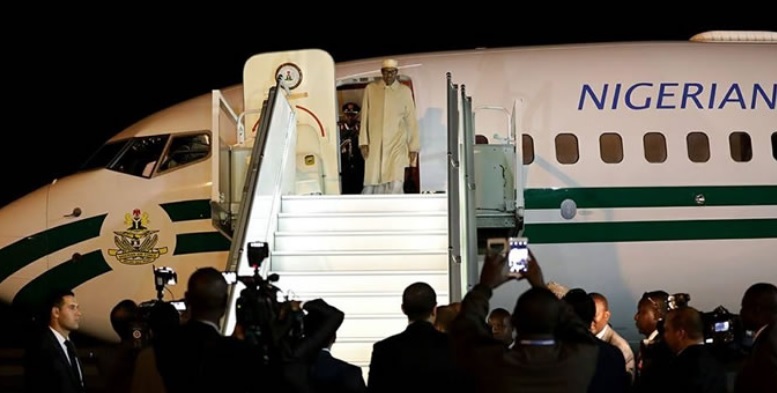Punch NG
Okechukwu Nnodim, Abuja
Nigeria and Morocco have completed the feasibility study for the construction of the 5,660km Nigeria-Morocco Gas Pipeline and the facility will supply gas to at least 15 countries in West Africa, the Group Managing Director of the Nigerian National Petroleum Corporation, Maikanti Baru, announced on Monday.
Baru also stated that pre-Front End Engineering Design optimisation study for the pipeline was currently ongoing, adding that the facility would boost the region’s industries when completed.
This is coming as the Minister of State for Petroleum Resources, Ibe Kachikwu, announced that African countries were mobilising about $2bn to develop a financing body that will fund the energy sector.
Both the NNPC boss and the minister spoke at the Nigeria International Petroleum Summit in Abuja which had senior government officials from across Africa, Europe and America.
In his address at the summit, Baru said, “We need to collaborate especially in the area of infrastructure. Today, Nigeria and Morocco are collaborating to construct a gas pipeline that will traverse at least 15 West African countries with intake and offtake points in the various countries before it links with the existing Maghreb-Europe gas pipeline in Northern Morocco. The feasibility study has been concluded and the pre-FEED optimisation study is currently ongoing.
“This pipeline will help in the industrialisation of these countries. It will also meet the needs of consumers for heating and other uses. We see gas as a fuel to take Africa to the next level. New gas discoveries have been recorded offshore Senegal, Mauritania, Mozambique and are in various stages of development.”
He added, “Nigeria is also targeting to take FID on LNG Train 7 this year. So African countries need to collaborate and trade among each other not only in terms of oil and gas but also in other key sectors so that the multiplier effect is seen across our various economies.”
On his part, Kachikwu, who doubles as the President of African Petroleum Producers Organisation, stated that APPO was sourcing for about $2bn for an energy corporation.
He said, “We are presently looking at expanding the role of a particular financing body that we are going to be calling the African Energy Investment Corporation. The whole idea is to mobilise between $1bn and $2bn of resources to fund all the essentials necessary for us to properly collaborate.
“Today, most African countries are silos, everybody does their own thing; you build your own refineries, plants, gas turbines, etc. If we could just cross the Rubicon and be able to extend hands of infrastructural relationship across Africa, build joint pipelines, plants and refineries; begin to protect the African market, we would have taken a huge step, not only in the development of Africa but to the stabilisation of independent countries.”
The minister, however, noted that the oil sector in Africa was facing some challenges.
Kachikwu said, “On the challenge side, certain things jump out; such as shale, oil pricing, investment limitation, President Trump and so many other things. At the opportunity side, so many other things are going. However, with the opportunities arise challenges, especially those to do with the environment.
“Unless you get your policies right, unless you get your market place right, unless you get your collaborative mechanisms right and get your infrastructure right, you would face a huge amount of challenge in the competition for the very scarce resources and scarce capital.”
Kachikwu stated that aside from Nigeria’s effort in domestic gas supply, the country was also expanding frontiers in the export market.
He confirmed Baru’s position and stated that the Federal Government had executed the Memorandum of Understanding between NNPC and the Office National des Hydrocarbures et des Mines Morocco for collaboration in the construction of a gas pipeline from Nigeria to Morocco.
“The NGMP feasibility study was completed in July 2018 and the FEED Phase 1 scope is expected to be completed by end of Q1, 2019,” the minister said.
On the skills in Nigeria’s oil and gas sector, Kachikwu stated that over 90 per cent of the oil majors’ workforce was Nigerians.
“This means that some of the best skill sets are here. One of the things I found going into the NNPC in 2015 was that every detail of capability that you need to run a global company sat in NNPC. They are much trained, very well exposed. We have issues in terms of policies, but in terms of skill sets, we are solid,” the minister added.
He further noted that Africa’s place as a significant producer and net exporter of oil in the world was forecast to grow by about 15 per cent by 2020 due to new discoveries in some Sub-Saharan countries.
Kachikwu stated that in the last five years, nearly 30 per cent of the world’s oil and gas discoveries were in Sub-Saharan Africa, adding that it was estimated that Africa oil and gas would increase by 74 per cent by 2050.
“We need the right policies, the right partnerships and the right investments. And now is the only time,” he said.
”Copyright PUNCH.
All rights reserved. This material, and other digital content on this website, may not be reproduced, published, broadcast, rewritten or redistributed in whole or in part without prior express written permission from PUNCH.
Contact: theeditor@punchng.com








